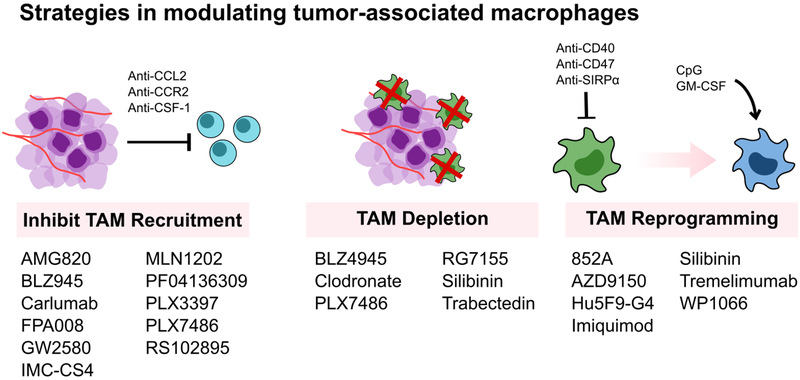Figure 3A.
Current clinical and pre-clinical macrophage-based strategies aim to (1) inhibit monocyte and macrophage recruitment, (2) deplete TAMs, or (3) reprogram TAMs to an anti-tumor phenotype. Many small molecule or monoclonal antibodies treatments target the CSF-1/CSF-1R or CCL2/CCR2 axis to inhibit monocyte recruitment and macrophage maturation. However, treatment cessation results in a rebound in monocyte population. Second, while TAM depletion has demonstrated efficacy in many animal models, indiscriminate TAM depletion may actually exacerbate tumor progression, emphasizing the complexity of macrophage populations and activity. Lastly, macrophage re-education toward an M1-like anti-tumor phenotype has been shown to reduce tumor progression, but can result in off-target side effects. Overall, all of these strategies can benefit from improved targeting to specific macrophage populations.

